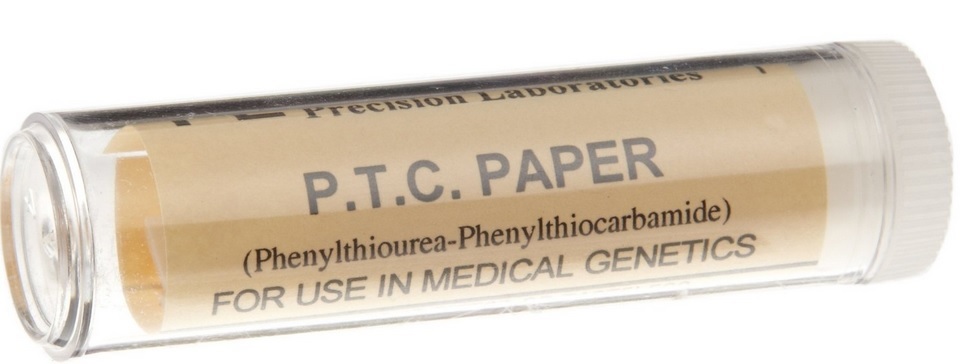 The STAO Safety Committee frequently responds to questions that Ontario teachers pose regarding safety in their science facilities. Here is a sample:
The STAO Safety Committee frequently responds to questions that Ontario teachers pose regarding safety in their science facilities. Here is a sample:
Question
Recently, the safety of PTC paper, used widely for demonstrating the ability to taste vs the inability to taste PTC, has been called into question. Many school boards in the USA subsequently banned its use. Question: What is the perspective of the STAO Safety Committee with regards to the use of PTC paper as a student activity in Senior Biology?
Response
The chemical in PTC paper is phenylthiocarbamide. It is also known as phenylthiourea. A quick look at an MSD sheet for this substance indicates that it is highly toxic, with an LD50 of 3mg/kg. OSHA has classified it as hazardous. The 2004 USA publication, Investigating Safety: A Guide for High School Teachers by Texley et al., suggested that the PTC content was high enough to be of concern. As a result, many school boards in the United States banned its use.
Dr. Steven Wooding is a research geneticist and is currently an Assistant Professor of Health at the University of California. Wooding et al. (2004) sequenced the coding region of TAS8R38 (detection of PTC) in 165 humans, one common chimp, and one gorilla. When asked to comment on the safety of PTC paper for the University of Utah, he stated that:
PTC is so intensely bitter that tasters can detect it in miniscule quantities. A single test paper from Carolina Biological Supply contains just 0.007 mg of PTC. And the amount that is licked off the paper by a test subject is much less than this. Assuming a linear dose response curve, we calculate that the 230 mg of NaCl in a vending machine bag of potato chips is about 100 times more toxic than the 0.007 mg of PTC in a taste paper.
STAO has published two documents (SOS and Safer Use of Chemicals) where PTC paper was listed as toxic and not recommended for use. Instead, STAO suggests using sodium benzoate as a safer alternative.If it tastes salty, bitter or sweet, then you are either homozygous dominant or heterozygous. If you do not taste sodium benzoate, then you are recessive.
We hope that the information contained in this response will assist you in making an informed decision as to whether you continue to use PTC test paper or not. If any new information is discovered as you research this topic, please keep our Committee informed so that we stay current. Please continue to direct your safety questions to info@stao.org. Any feedback that you can provide as to how useful this information was, and as to the promptness of the response, would be appreciated.
Dave Gervais
STAO Safety Chair
References
Genetic Science Learning Center. “A Tree of Genetic Traits.” Teach.Genetics 10 February 2015 <http://teach.genetics.utah.edu/content/begin/traits/tree.html>
McDonald, J.H. 2011. Myths of Human Genetics. Sparky House Publishing, Baltimore, Maryland. Pp54-60 http://udel.edu/~mcdonald/mythptc.html
MSD for PTC Paper scholarchemistry.com/msds/PTC_Paper_530.20.pdf OR http://boreal.com

